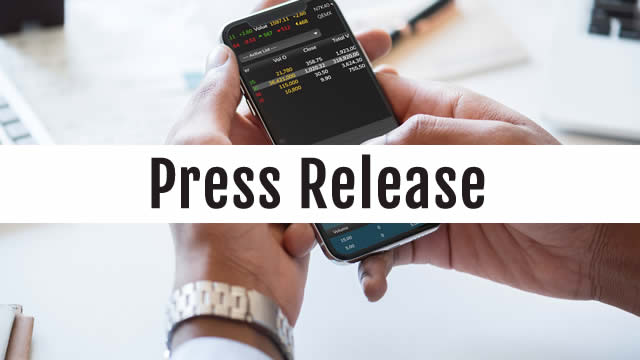BDC Stock Recent News
BDC LATEST HEADLINES
Trinity Capital offers a double-digit, well-covered 12.9% dividend yield. The BDC reported NAV per share growth of 22 cents sequentially for its second quarter. TRIN's payout ratio also improved sequentially following NII that grew by 30.3% over its year-ago comp.
NEW YORK--(BUSINESS WIRE)--Investcorp Credit Management BDC, Inc. (NASDAQ:ICMB) (“ICMB” or “Company”) today announced that it will release its financial results for the second quarter ended June 30, 2025 on Tuesday, August 12, 2025, after the close of the financial markets. The Company will host an earnings conference call at 10:00 am (Eastern Time) on Wednesday, August 13, 2025 to review its financial results and conduct a question-and-answer session. All interested parties may participate in.
FDUS continues to deliver superior returns, while the overall sector is struggling. The recent quarter shows both earnings and NAV growth, which for an average BDC is not that common anymore. Currently, we can buy FDUS at a premium of 9%.
We take a look at the action in business development companies through the first week of August and highlight some of the key themes we are watching. BDCs underperformed despite strong early earnings, with sector valuations dipping below historical averages. Tight lending spreads continue to pressure BDC net income.
Business Development Companies offer income-focused investors access to big-yield private credit opportunities, traded on the public market. Hercules Capital is a standout among the group for its differentiated strategy, consistent long-term growth, and big quarterly dividend payments to investors. This report reviews Hercules' business strategy, growth, dividend safety, valuation, and risks, and then concludes with my strong opinion on investing.
I recommend Belden Inc. as a buy with a $135 price target, driven by exposure to U.S. reindustrialization, automation, and data center megatrends. Belden's strong order growth, major contract wins, and global manufacturing footprint position it for sustainable, margin-accretive growth amid favorable US/EU trade policies. BDC maintains a solid balance sheet, targets further deleveraging, and pursues M&A in edge, cybersecurity, and IT/OT convergence to enhance its technology stack.
NEW YORK--(BUSINESS WIRE)--Goldman Sachs BDC, Inc. (“GSBD”, the “Company”, “we”, “us”, or “our”) (NYSE: GSBD) today reported financial results for the second quarter ended June 30, 2025 and filed its Form 10-Q with the U.S. Securities and Exchange Commission. QUARTERLY HIGHLIGHTS Net investment income per share for the quarter ended June 30, 2025 was $0.38. Excluding purchase discount amortization per share of $0.01 from the Merger (as defined below), adjusted net investment income per share wa.
CHARLOTTE, N.C.--(BUSINESS WIRE)--Barings BDC, Inc. (NYSE: BBDC) (“Barings BDC” or the “Company”) today reported its financial and operating results for the second quarter of 2025 and announced that the Company's Board of Directors (the “Board”) declared a quarterly cash dividend of $0.26 per share. Highlights Three Months Ended Three Months Ended Income Statement June 30, 2025 March 31, 2025 (dollars in millions, except per share data) Total Amount Per Share(1) Total Amount Per Share(2) Net.
Blue Owl Capital stock remains a 'buy' due to its strong performance and future potential for both new and existing shareholders. The recent Q2 2025 financial report highlights improved portfolio quality and resilience after a successful merger. Blue Owl Capital has expanded its portfolio size, increased diversification, and enhanced credit quality with more highly rated investments.
I am downgrading Palmer Square Capital BDC to a more cautious stance, due to persistent NAV declines, dividend cuts, and heavy reliance on debt for growth. PSBD's portfolio is defensively structured with first lien senior secured loans, but high rates are stressing borrowers and limiting new investment activity. The stock trades at a significant discount to NAV, reflecting real operational challenges rather than a value opportunity, with little near-term turnaround expected.








